

A hidden subterranean web of abandoned stations, tracks, and platforms is intertwined with the active parts of New York City’s ever-evolving subway system. Without even knowing it, you may be riding through an abandoned station every day on your commute or standing next to a wall with an abandoned platform on the other side.
The now-abandoned Bowery Station and Canal Street platforms and tracks were originally part of the Brooklyn Manhattan Transit Company system (BMT), the second of three private subway lines to operate in New York City along with the Interborough Rapid Transit Company (IRT) and the Independent Subway System (IND). The neighboring stations were constructed as part of the loop that runs between the Williamsburg Bridge and lower Manhattan. Both stops opened in August 1913, when construction of the Chambers Street station was complete. At the time, Chambers Street was the terminal stop in Manhattan.
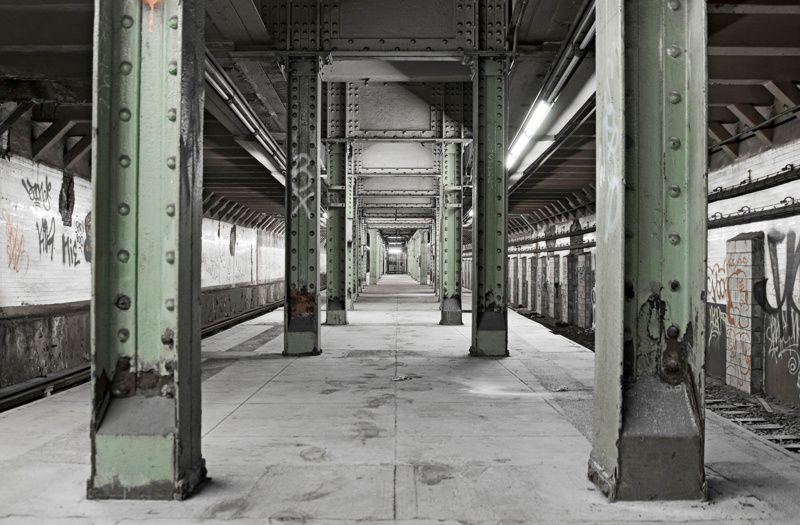
Bowery Station was an important stop because it connected four existing streetcar tracks, including the elevated 3rd Ave Line, with the subway. Two planned stations at Leonard to Franklin Streets and at Howard to Grand Streets were condensed into one station at Canal Street in 1907 when construction began. Both the Bowery Station and Canal Street stations were originally designed with four tracks and two island platforms. During its first year in operation, only one platform and two tracks were used at Canal Street. In 1914, the tracks were rearranged so that the northbound track was relocated south of the station. The two center tracks end inside the station.
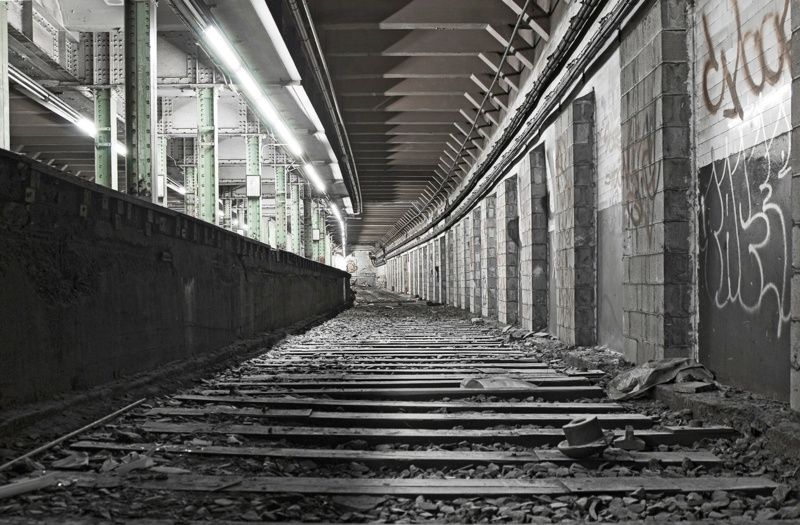
In 2004, the northbound platforms of each station were taken out of service. This was part of a reconfiguration of the Nassau Street line. Since being abandoned, the two stations have become objects of fascination for urban explorers. In addition to the barren tracks and platforms, both stations also have closed-off entrances. At the Bowery Station entrance, at least until a few years ago, there was even still an old wooden ticket booth. These entryway areas have been completely blocked off.
While these platforms and tracks have been abandoned for more than fifteen years, they are directly adjacent to active tracks and platforms within the station. “These redundancies,” the photographer noted, “really speak to the spirit and the history of the New York City subway .” In these recent photographs, you can clearly see the signs of neglect, from the abundance of graffiti and grime to the missing benches, but also the familiar features of lower Manhattan subway stations. For example, in the Bowery Station, you can still see the decorative mosaics that run along the track walls.
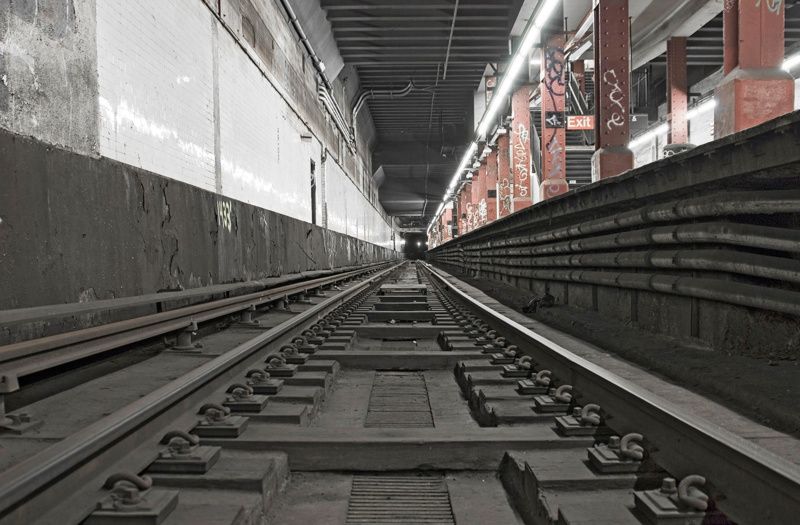
While these abandoned portions of the Bowery and Canal stations no longer serve subway riders, they have made the news for serving other purposes. In 2015, the abandoned platform at the Bowery was used by the NYPD for a counter-terrorism training drill. It has also been the site of a Star-Wars-themed anti-ISIS mural by graffiti artist VEW. Recently, in 2019, Tom Ford unveiled his 2020 collection with a fashion show on the abandoned platform. The platform is also frequently used for film and television shoots. You can see it as a backdrop to scenes in USA’s series Mr. Robot and the Amazon Prime show Hunters with Al Pacino.
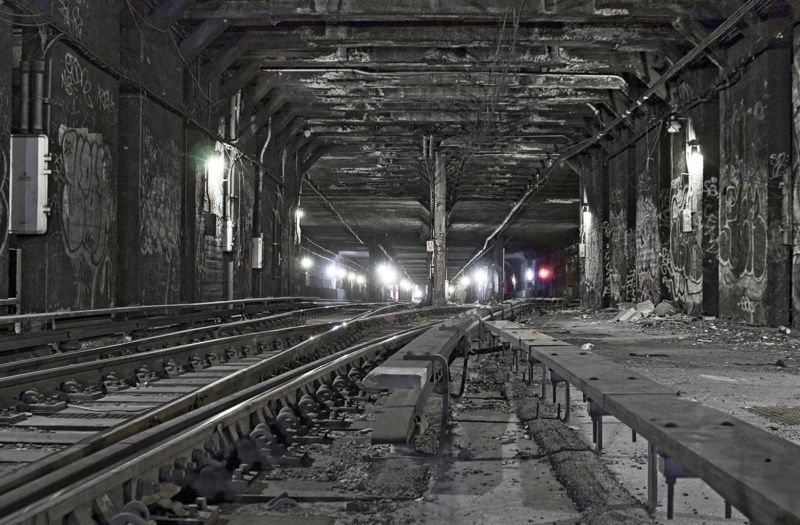
At Canal Street, the abandoned tracks served as the backdrop of a site-specific art installation by Russian-born artist Alexander Brodsky. Brodsky turned the tracks into a Venetian canal with shadow puppets and gondolas made of tin and wooden cutouts. Lights, soft music, and the sound of lapping water, along with the slight movement of the cutouts in a shallow tank of water all enhanced the illusion. Behind the cutouts, a perspective drawing of an ancient Venetian street further added to the effect. Brodsky described his piece as “one of the millions of strange things that happen to you in this city.”
While it is tempting to want to explore these abandoned stations yourself, it is very dangerous. Untapped New York does not encourage trespassing or walking on subway tracks.
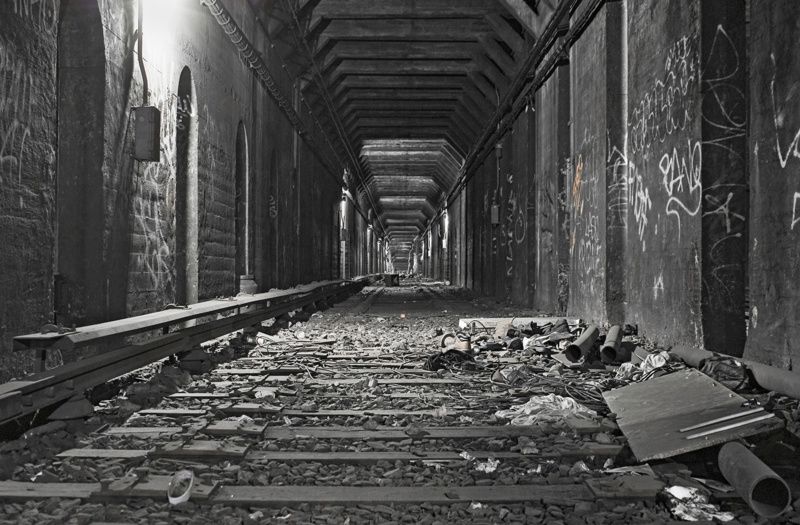
Next, check out 20 of NYC’s Abandoned Subway Stations, Levels and Platforms

